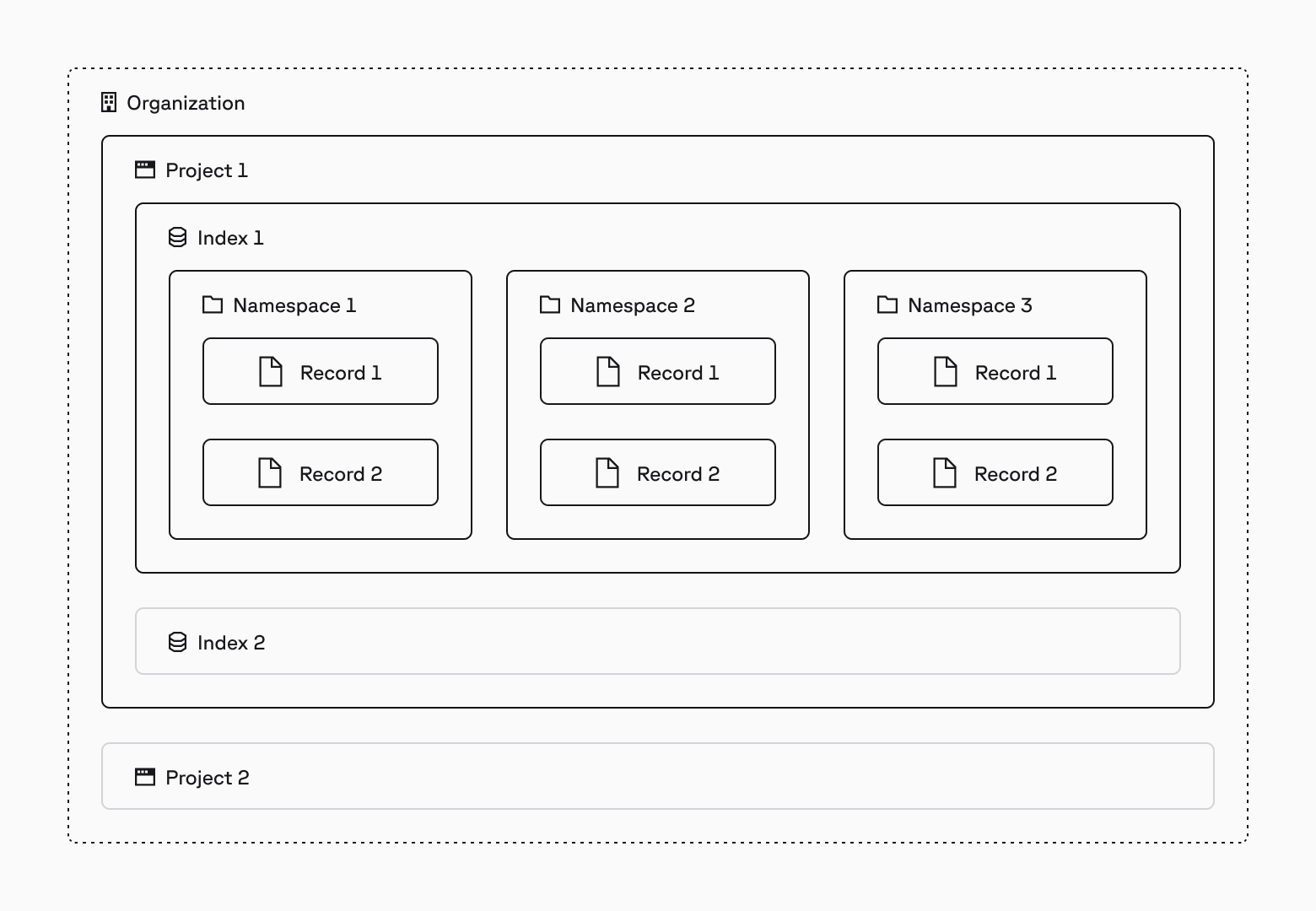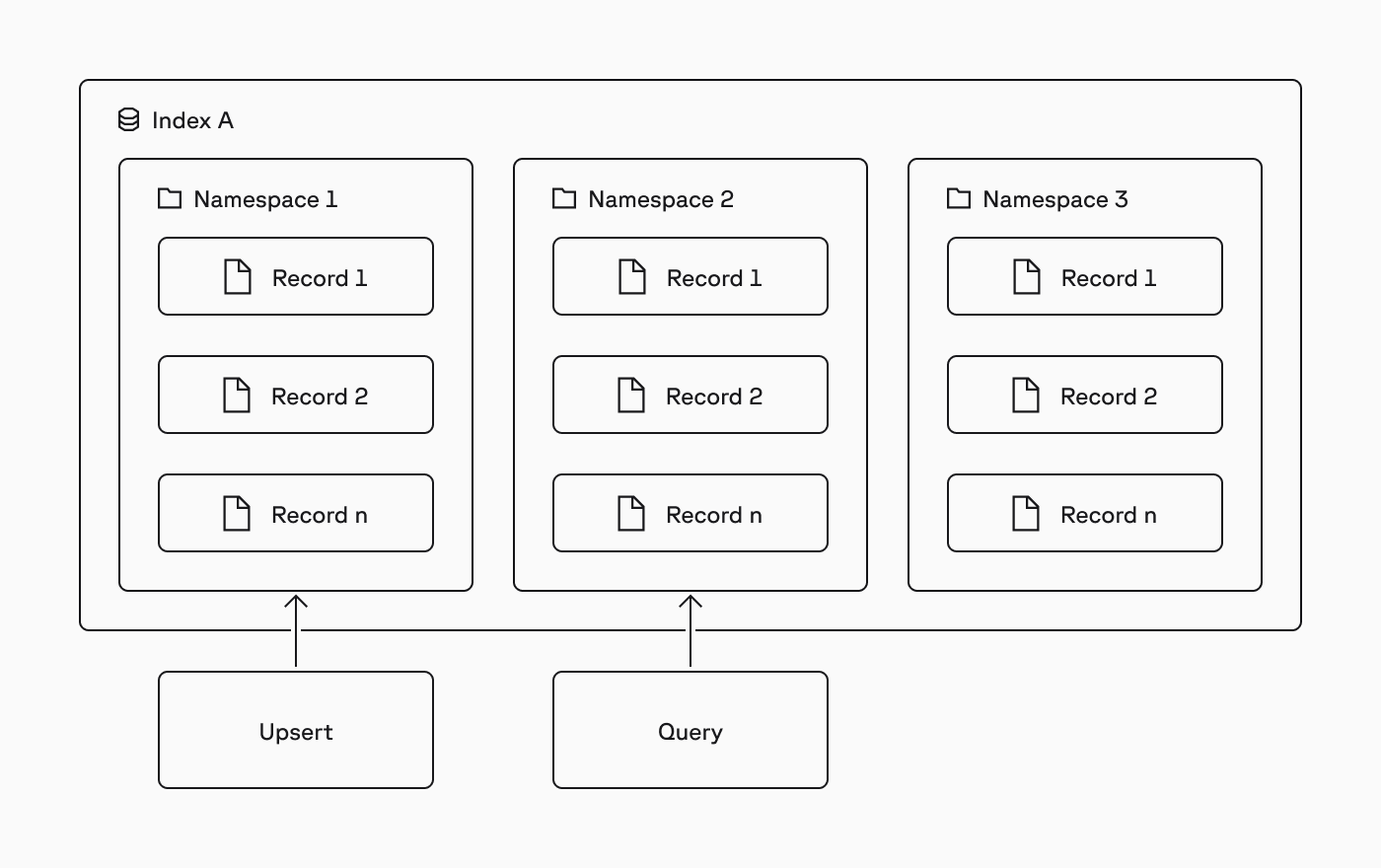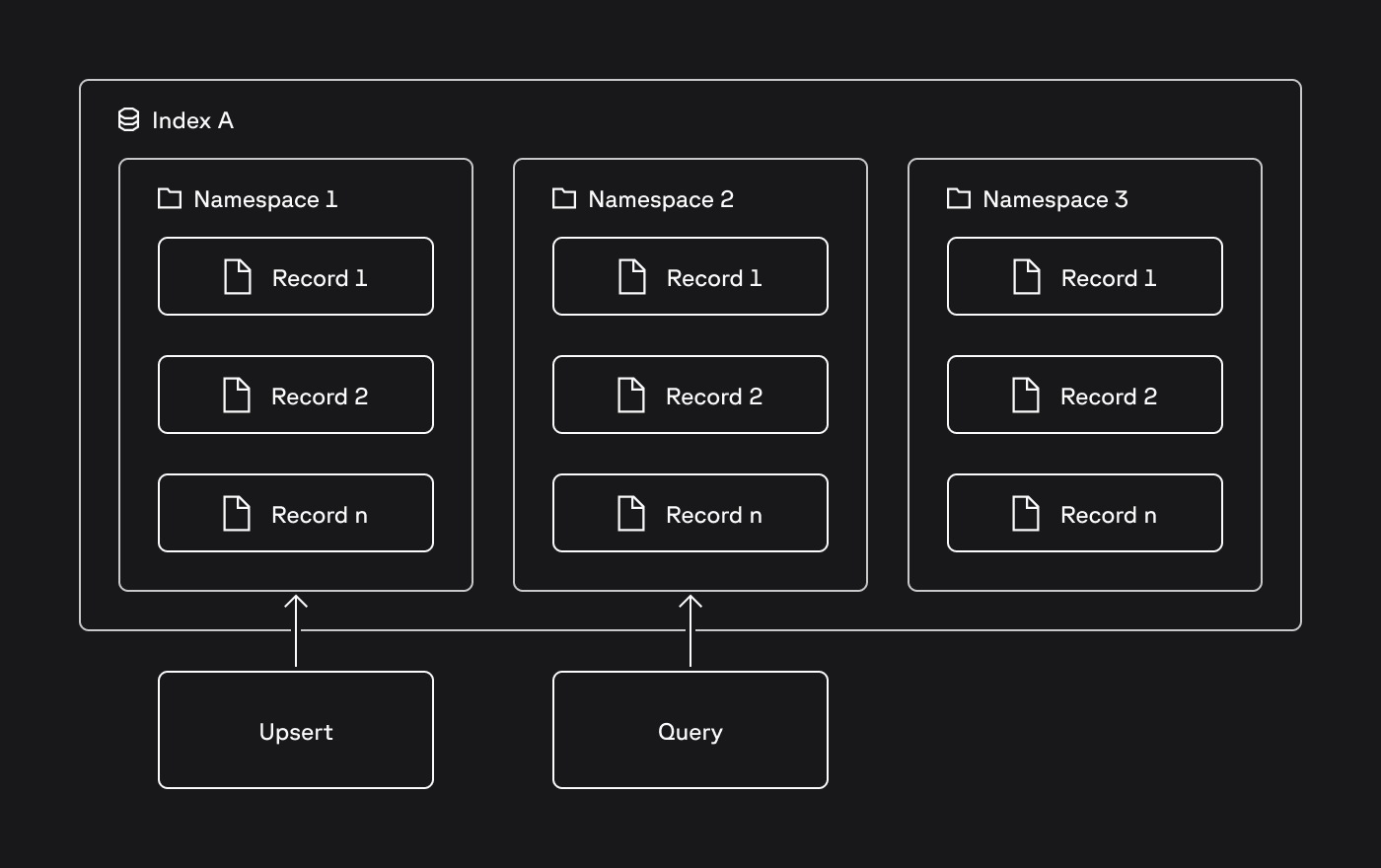

Organization
An organization is a group of one or more projects that use the same billing. Organizations allow one or more users to control billing and permissions for all of the projects belonging to the organization. For more information, see Understanding organizations.Project
A project belongs to an organization and contains one or more indexes. Each project belongs to exactly one organization, but only users who belong to the project can access the indexes in that project. API keys and Assistants are project-specific. For more information, see Understanding projects.Index
There are two types of serverless indexes, dense and sparse.Dense index
Dense indexes store records that have one dense vector each.If any records in a dense index also have a sparse vector, the index is a hybrid index.
Sparse index
Sparse indexes store records that have one sparse vector each. Every sparse vector is a series of numbers that represent the words or phrases in a document. Sparse vectors have a very large number of dimensions, where only a small proportion of values are non-zero. The dimensions represent words from a dictionary, and the values represent the importance of these words in the document. When you search a sparse index, Pinecone retrieves the records with sparse vectors that most exactly match the words or phrases in the query. Query terms are scored independently and then summed, with records that have the most similar vectors scored highest. This is often called lexical search or keyword search.Namespace
A namespace is a partition within a dense or sparse index. It divides records in an index into separate groups. All upserts, queries, and other data operations always target one namespace:
 For more information, see Use namespaces.
For more information, see Use namespaces.